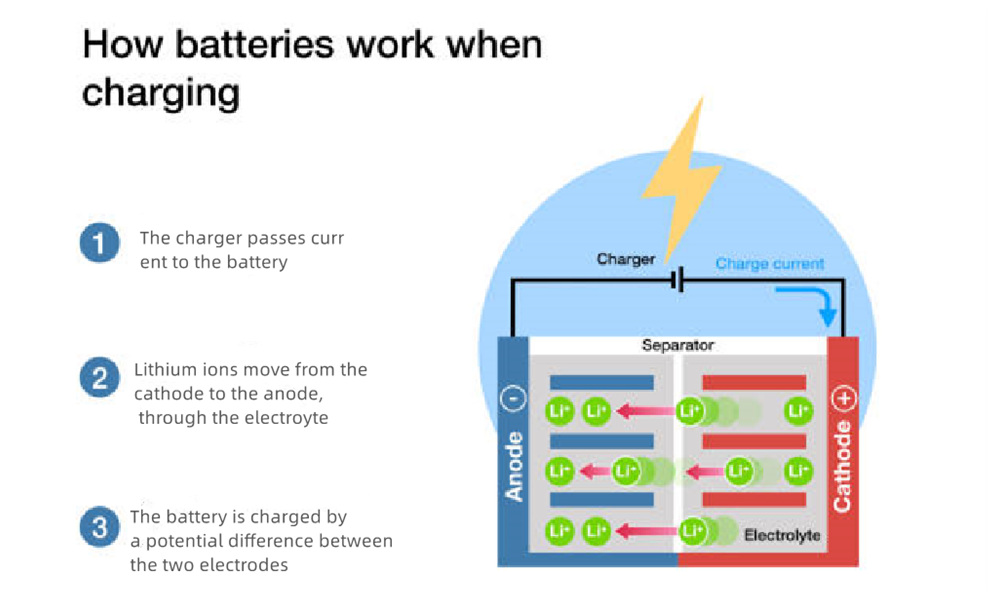To charge lithium-ion batteries are a very important thing. We often go out on weekends and some electronic devices run out of power. This is a bad thing. Is not it? So learn to charge your electronics.
1. The principle of charging and discharging lithium-ion batteries
So how do you make a lithium-ion battery lasts as long as possible?
Shallow discharges and recharges are better than full discharges because they put less stress on the battery, so it can last longer.
When your battery is being discharged, it is recommended that you only let it reach 50% before recharging it. When charging it, you should also avoid pushing your Li-Ion battery all the way to 100%.
If the battery is fully charged, you should disconnect it from the charger as soon as possible to avoid trickle charging, which will keep the battery at a high charge level and thus also at a high-stress level.
If the charge level is 80 % or higher, avoid charging the battery before use. The closer the battery is to 100 % charge, the slower the charge rate will be: the charger is actively reducing the current to make the battery easier.
However, since these last few percentages put a lot of stress on the battery, the battery also gets hotter at the end of the charge cycle.
If the battery is dead, you should avoid charging it to only 20 % before using it.

2. How to store and protect Lithium ion battery
Lithium-ion batteries are common in many electronic devices, from cell phones to laptop computers. While they are convenient and long-lasting, they can be damaged if not stored properly. Below are some tips on how to store and protect lithium-ion batteries:
– Avoid extreme temperatures: Both heat and cold can damage lithium-ion batteries, so it’s best to keep them at room temperature.
– Store in a dry place: Humidity can also cause lithium-ion batteries to degrade, so be sure to store them in a dry environment.
– Keep away from metal objects: Metal objects can cause a short circuit in lithium-ion batteries, so it’s best to keep them away from keys, coins, or other metal objects.
By following these simple tips, you can help extend the life of your lithium-ion batteries.
